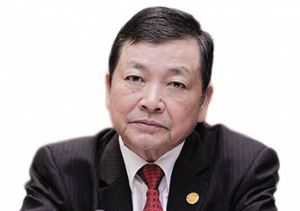APEC’s business council pushes integration
 |
Could you brief us on the major outcomes of the APEC 2017 Business Advisory Council’s (ABAC) most recent meeting in July?
With the ambition of turning APEC into a symbol for openness, inclusion, and innovation, ABAC members gathered in Toronto of Canada in July for discussions in order to give out recommendations to leaders in APEC economies concerning the priorities of businesses in the region.
ABAC has compiled a 2017 report which encompasses recommendations to enhance openness and integration in the region, thus promoting sustainable development, innovation, and benefiting all regional communities.
ABAC recommendations cover issues of regional economic integration; institutional regional connectivity; infrastructure and manpower; sustainable development, innovation, and inclusion; micro-, small-, and medium-sized enterprise (MSME) support; and women’s engagement in economic activities.
MSME support is of prime concern locally and one of the top priorities for deployment. How have ABAC recommendations focused on this issue?
Up to 97 per cent of APEC firms are defined as MSMEs, a similar ratio to Vietnam’s economy. We have recommended scaling up efforts to create the most conducive environment for the development of MSMEs, and facilitating access to the world market and global value chains for SMEs. Simultaneously, our recommendations cover enhancing competitiveness, prioritising the use and development of digital technology and the internet to enable SMEs to access and smartly use new technologies, and boosting women’s engagement in the economy and the process of women’s connectivity through ABAC.
We have submitted the recommendations to the Vietnamese president, and other APEC economies have also submitted their proposals to their leaders in order to further perfect the recommendations.
In ABAC 2017’s upcoming fourth and final meeting in Danang next month, the recommendations which seek to convey the message of businesses in the region to APEC leaders will be part of the dialogues between APEC leaders and ABAC members.
According to the Ministry of Foreign Affairs’ recent announcement, most leaders of APEC economies will attend the dialogue, the APEC CEO Summit and related conferences, which attests to their attention to the cause of business community development.
What will be on the agenda of the upcoming dialogue between APEC economic leaders and ABAC members?
In the past, the dialogues between APEC economic leaders and ABAC members involved multiple questions. Recently, we realised that with a limited timeframe, it is impossible to raise too many questions. Therefore, we will firstly focus on building a multilateral trade system. Second is the need to remove trade barriers, and trade protectionism in some member economies. The third involves supporting MSMEs, particularly in finance, and creating mechanisms and applying science and information technology to support SMEs in information procurement.
One of the ABAC recommendations relates to facilitating the Free Trade Area of the Asia-Pacific. How will this impact on businesses?
Under the Bogor Goals, APEC should be on track to become a leading free trade and investment region by 2020. However, currently, these goals are not realistically achievable. So we are now focused on discussing APEC’s vision for after 2020, and our conclusions will be put on the agenda of APEC leaders during the upcoming sitting.
What the stars mean:
★ Poor ★ ★ Promising ★★★ Good ★★★★ Very good ★★★★★ Exceptional
Latest News
More News
- Ford’s continuing efforts to make Vietnam’s roads safer (November 07, 2017 | 16:08)
- Viet Nam is trying to improve itself: PM (November 07, 2017 | 15:34)
- PM delivers keynote speech at Viet Nam Business Summit (November 07, 2017 | 11:34)
- APEC Vietnam 2017 special publication now available (November 07, 2017 | 11:32)
- Four Vietnamese entrepreneurs to attend APEC CEO Summit (November 06, 2017 | 20:38)
- State President: APEC shows strong vitality and resilience despite global upheavals (November 06, 2017 | 20:24)
- Concluding Senior Officials' Meeting kicked off in Danang (November 06, 2017 | 16:34)
- Vietnam’s proposals to generate new dynamism for APEC (November 06, 2017 | 15:42)
- APEC media centre in full swing (November 06, 2017 | 15:01)
- CSOM opens 2017 APEC Economic Leaders’ Week (November 06, 2017 | 14:55)
















 Mobile Version
Mobile Version